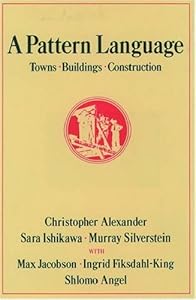A number of architects advanced the theory and practice of modern architecture, and there's no desire here to produce an exhaustive, or even representative, catalog of these individuals. What I'd like to do is catalog a few, those who advanced the state of architecture in a direction that in my own view was valid. In doing so, this vein of architectural design that I've concluded is most valid becomes the backbone of the content of these posts.
(In no way does the delineation of personal convictions try to negate the value of work done by other schools of thought. Architectural theory has always been held by many architects as something of a moral imperative. They then go on to argue their convictions in moralistic, often passionate terms. While this is understandable, it tends to be unproductive, I think, so I'd like to disclaim any presumption of divine right to the "true faith" of architecture. Such beliefs just have to stand on their own, and there's adequate room for disagreement about what constitutes valid design philosophy and what does not.)
So, here's a list of modern masters, architects whose work I've most admired and felt were able to find valid approaches to design, although they were quite dissimilar.
- Alvar Aalto
 Image via Wikipedia Aino and Alvar Aalto
Image via Wikipedia Aino and Alvar Aalto - Le Corbusier
- Mies van der Rohe
- Louis Kahn
- Frank Lloyd Wright
Of possibly less world-wide stature, but immense ability and accomplishment:
Of the ten listed, (yes, a top ten list) Aalto, Kahn, Utzon and Erskine produced the work I've probably most admired, and felt to be most philosphically valid.
This guy, Kenneth Frampton, says it well. "Critical Regionalism" is a nice phrase, loaded with meaning, and utterlly devastating to a lot of stuffed-shirt phoniness that finds its way into various media that deal with the subject of architecture. While he writes critically, he articulates values that, in my opinion at least, address important themes of architecture that resonate in people's lives.
Another theoretician, Christopher Alexander, delved deeply into the study of what it is that does

![Reblog this post [with Zemanta]](http://img.zemanta.com/reblog_e.png?x-id=aa5be239-0f44-46f1-9f21-2e93afa83e68)

No comments:
Post a Comment